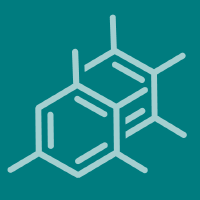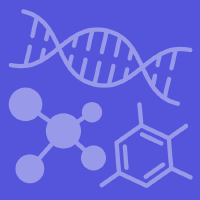Topic Editors



Sustainable Water Purification Technologies for Multiple Applications

Topic Information
Dear Colleagues,
Water is a key element for the benefit of human well-being, poverty reduction and sustainable development. Even in countries with adequate water resources, water scarcity is not uncommon. Although this may be due to a number of factors, such as inefficient infrastructure and distribution systems, contamination, conflict, or the poor management of water resources, it is evident that climate change, as well as human factors, are increasingly denying water access to a relevant part of the population worldwide. Therefore, proposals for highly effective and inexpensive methods of fresh, salt, and wastewater treatment and purification are highly relevant. Moreover, it is crucial to consider the water, energy, and food nexus: water security is very much linked with both energy and food security, meaning that the actions in any one particular area often have effects in one or both of the other areas. At the present stage, there are a vast number of methods available for the treatment of waste and natural waters. The treatment target may vary on the basis of water specific application (i.e., drinkable water, domestic hot water production, water for irrigation, water for industrial/energy processes, and water for e-fuels generation, such as hydrogen). Modern methods of water treatment include the use of various sorption materials (like nanostructures, sorbents from waste, biosorbents, plant sorbents); membrane technologies (like ultra- and mesofiltration, reverse osmosis); phylomediation technologies using higher aquatic plants (like Eichhornia, duckweed, limnophila), and much more, depending on the final water use and chemical–physical characteristics required. The development and application of innovative and sustainable methods of water treatment for multiple applications will solve a number of environmental problems that are associated with clean water and public health, as well as increasing food and energy security. This Special Issue entitled “Sustainable Water Treatment Technologies for Multiple Applications " aims to systematize sustainable technologies used around the world, which will provide the world community with water for multiple applications in the water–food–energy nexus area. The topics are:
- Natural water and wastewater sustainable treatment for drinkable water production, including sorbents, biological, physical and chemical methods;
- Natural water and wastewater sustainable treatment for direct use in agriculture, including desalination;
- Natural water and wastewater sustainable treatment for water direct use in industrial processes, including heat and power plants;
- Natural water and wastewater sustainable treatment for water use as a feeding element to energy-to-chemicals conversion systems, like water electrolysis.
Dr. Marco Pellegrini
Dr. Cesare Saccani
Dr. Alessandro Guzzini
Topic Editors
Keywords
- water purification
- water treatment
- sorbents
- biological treatment
- chemical treatment
- water–food–energy nexus
Participating Journals
| Journal Name | Impact Factor | CiteScore | Launched Year | First Decision (median) | APC | |
|---|---|---|---|---|---|---|

Energies
|
3.0 | 6.2 | 2008 | 16.8 Days | CHF 2600 | Submit |

Membranes
|
3.3 | 6.1 | 2011 | 14.9 Days | CHF 2200 | Submit |

Molecules
|
4.2 | 7.4 | 1996 | 15.1 Days | CHF 2700 | Submit |

Separations
|
2.5 | 3.0 | 2014 | 15.1 Days | CHF 2600 | Submit |

Water
|
3.0 | 5.8 | 2009 | 17.5 Days | CHF 2600 | Submit |

Sustainability
|
3.3 | 6.8 | 2009 | 19.7 Days | CHF 2400 | Submit |

BioTech
|
2.7 | 3.7 | 2012 | 26.1 Days | CHF 1600 | Submit |

Preprints.org is a multidisciplinary platform offering a preprint service designed to facilitate the early sharing of your research. It supports and empowers your research journey from the very beginning.
MDPI Topics is collaborating with Preprints.org and has established a direct connection between MDPI journals and the platform. Authors are encouraged to take advantage of this opportunity by posting their preprints at Preprints.org prior to publication:
- Share your research immediately: disseminate your ideas prior to publication and establish priority for your work.
- Safeguard your intellectual contribution: Protect your ideas with a time-stamped preprint that serves as proof of your research timeline.
- Boost visibility and impact: Increase the reach and influence of your research by making it accessible to a global audience.
- Gain early feedback: Receive valuable input and insights from peers before submitting to a journal.
- Ensure broad indexing: Web of Science (Preprint Citation Index), Google Scholar, Crossref, SHARE, PrePubMed, Scilit and Europe PMC.

